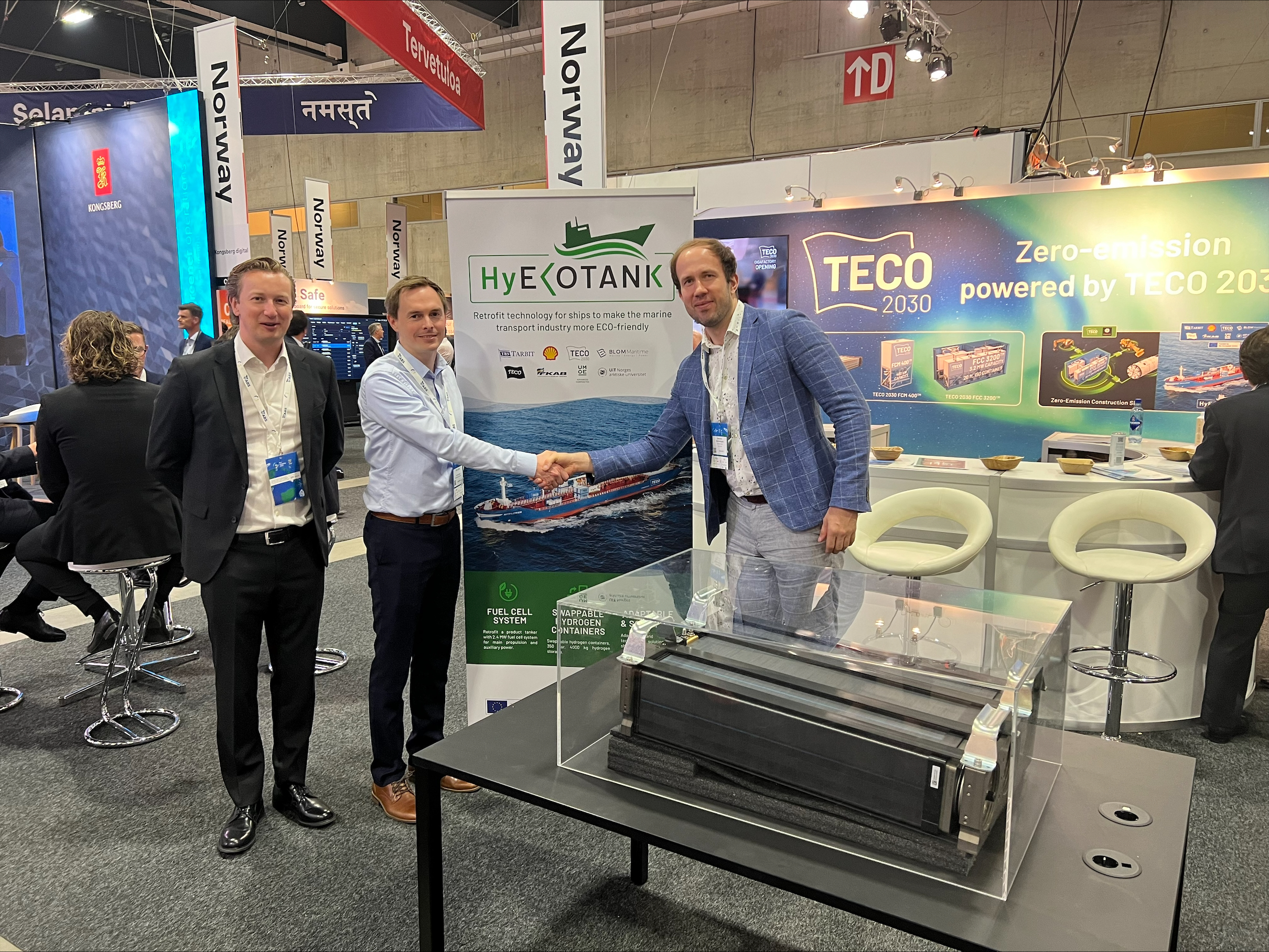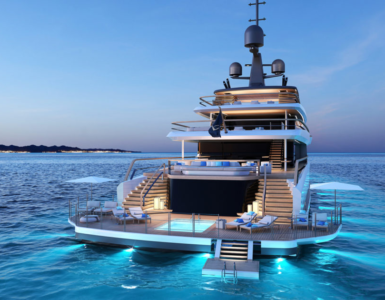Teco 2030 partners SuperBattery producer for hydrogen fuel cell project with Shell.
As a first step, Skeleton’s SuperBattery shall be integrated with TECO 2030’s fuel cell modules in the HyEkoTank project, the largest marine fuel cell retrofit projects in the world, led by TECO 2030, Shell, and other consortium partners from three European countries (Norway, Sweden, and Netherlands).
Skeleton Technologies and TECO 2030 will then aim to develop joint solutions combining TECO 2030’s hydrogen fuel cells and Skeleton’s SuperBattery to enable the maritime industry’s transition to net-zero, based on Skeleton’s work in the HydroCap project funded by the Estonian government.
The HyEkoTank project started on February 1st, 2023, in Lysaker, Norway, and is planned to last for 3 years, with the goal of eliminating carbon emissions during voyage and in port operations. TECO 2030 will retrofit six 400 kW Fuel Cell Modules in a container solution and demonstrate power supply for both propulsion and auxiliary loads using hydrogen with zero emissions as fuel.
🔥 What about we co-host a webinar? Let's educate, captivate, and convert the hydrogen economy!
Hydrogen Central is the global go-to online magazine for the hydrogen economy, we can help you host impactful webinars that become a global reference on your topic and are an evergreen source of leads. Click here to request more details
Skeleton’s SuperBattery modules will sharply increase fuel cells’ performance and lifetime by reducing the requirement for peak power from the fuel cell.
Taavi Madiberk, CEO and co-founder of Skeleton Technologies, said:
We are thrilled to announce this strategic partnership with TECO2030, one of the global leaders in green maritime technology.
“There are many synergies between our companies, as Skeleton is focused on reducing CO2 emissions in hard-to-decarbonize sectors and the maritime industry is surely one of them. We are confident our SuperBattery product can contribute to its transition towards net-zero by being a key enabling and complementary technology for fuel cell powered ships.”
“Our SuperBattery shall first be integrated with TECO 2030’s fuel cell modules in the HyEkoTank project, whose consortium includes another key partner for Skeleton – Shell – with whom we collaborate on the electrification of mining sector. We are hopeful many opportunities will arise from this new partnership with TECO 2030“.
Fredrik Aarskog, Director of Business Development in TECO 2030, said:
On a fuel cell powered ship all energy is generated by the fuel cell and it is optimal to supply that energy directly to the consumer when possible.
“Therefore, large battery energy storage capacity is typically not needed on a ship. However, a fuel cell system needs a few seconds to react to load changes so a high-power battery for peak-shaving is the perfect match. Combining the compact and dynamic FCM400 marine fuel cell from TECO 2030 with the high-power SuperBattery from Skeleton significantly reduces the installation space needed in the HyEkoTank project. In addition, this solution will be cheaper, safer and more sustainable than a conventional lithium-ion battery solution.“
Skeleton’s SuperBattery is a perfect fit for TECO 2030’s fuel cells due to its power, safety, lifetime, and recyclability, therefore contributing to a joint solution to retrofit fleets and significantly reduce their GHG emissions cost-effectively.
The HyEkoTank is a project funded by the European Union under the Horizon Europe programme to develop optimised hydrogen fuel cell solutions for maritime applications and accelerate the achievement of climate neutrality of both sea-going and inland waterway waterborne transport.
Shipping is considered as a hard-to-decarbonize sector and its CO2 emissions accounts for 2.89 % of the world’s emissions. The industry needs modular systems applicable for retrofit and newbuild, capable of reducing emissions and enable flexibility. Renewable hydrogen is seen as the best solution to enable the sector’s decarbonization goals, but fuel cells need complementary technologies such as Skeleton’s SuperBattery to increase their performance and lifetime.
The solution may eventually be used beyond the maritime sector, in heavy duty trucks, rail, shorepower, and construction. Skeleton is already involved in the project „HydroCap“ funded by the Estonian government to explore these additional applications.
TECO 2030, a spin-off from TECO Maritime Group, is building Europe’s first Proton exchange membrane (PEM) fuel cells gigafactory in Norway. The factory is planned to start production as soon as possible in 2024, with an annual output of 400MW in 2025 and 1,600MW of fuel cells by 2030.
TECO 2030 and Skeleton Technologies enter a strategic partnership to boost zero-emission technologies, June 6, 2023








